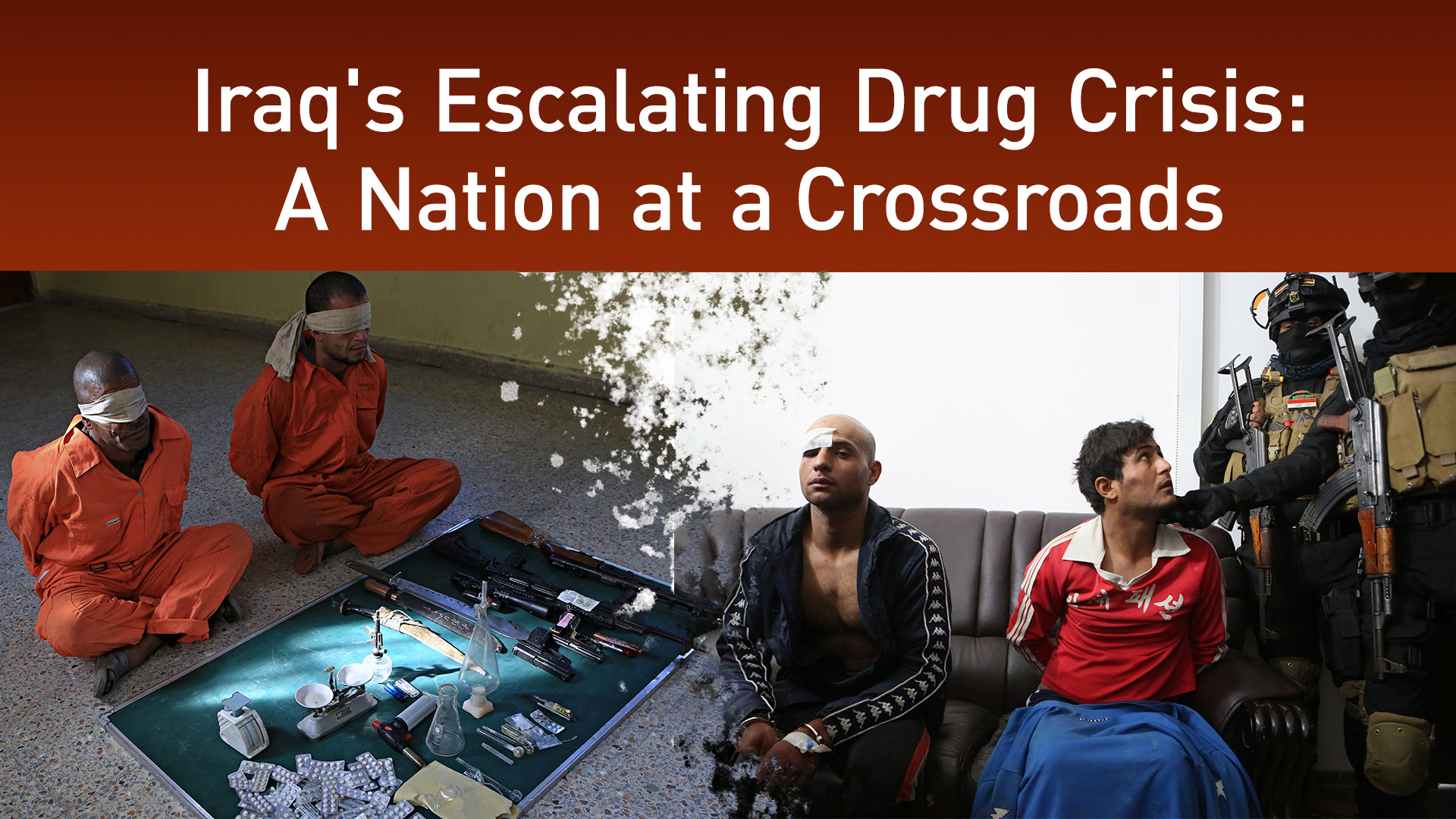Iraq's Escalating Drug Crisis: A Nation at a Crossroads
In 2023 alone, authorities seized over 4.1 tons of Captagon, marking a staggering 3,380% increase in drug interceptions over the past four years.

ERBIL (Kurdistan24) – Iraq is grappling with a rapidly intensifying drug crisis, with recent data revealing a surge in both usage and trafficking across the nation. The proliferation of narcotics poses a significant threat to public health, security, and societal stability.
In 2024, Iraqi authorities arrested over 14,000 individuals on charges related to drug trafficking and possession. The judiciary responded with stringent measures, issuing death sentences to 144 international drug traffickers and life sentences to 434 local offenders.
According to a report by the United Nations Office on Drugs and Crime (UNODC), the volume of drug seizures has also escalated dramatically. Between 2019 and 2023, Iraq experienced a staggering 3,380% increase in the interception of "Captagon," an amphetamine-based tablet. In 2023 alone, authorities seized over 4.1 tons of this substance.
Additionally, from early 2024 to July, the Ministry of Interior reported the confiscation of two tons of various drugs and ten tons of psychotropic substances.
The drug epidemic has permeated various provinces, with notable activities in Baghdad, Basra, Muthanna, Nineveh, and Kirkuk. In Baghdad and Muthanna, security forces dismantled human trafficking gangs and apprehended drug dealers, reflecting the intertwined nature of these illicit activities.
In Nineveh and Kirkuk, a high-quality intelligence operation led to the arrest of three drug traffickers and the seizure of 208 kilograms of Captagon pills.
Basra, Iraq's southernmost province, has become a focal point in the nation's escalating drug crisis. In the first half of 2019, the Supreme Judicial Council reported that Basra accounted for 1,871 drug-related arrests, making it the second-highest province after Baghdad.
The proliferation of narcotics in Basra is attributed to its strategic location, serving as a transit route for drugs moving east, west, and north across Iraq.
Recent operations underscore the severity of the issue; in February 2025, authorities destroyed 238 kilograms of various narcotics, including hashish, crystal meth, heroin, and cocaine, in Basra.
Iraq's strategic location has made it a transit route for drug trafficking, with narcotics flowing in from neighboring countries. The fall of Syria's Bashar al-Assad exposed a massive drug-smuggling network, primarily focusing on the production and trafficking of Captagon. This operation not only provided significant financial support to Assad's regime but also benefited allies like Lebanon's Hezbollah militia. With the disruption of these operations, Iraq has been identified as a significant new node in the trade.
Additionally, the expansion of criminal networks in Iraq and across the region has been facilitated by chronic political and economic instability.
The Iraqi Ministry of Defense has intensified its efforts to combat the drug epidemic. Under the guidance of Defense Minister Thabet Al-Abbasi, the General Directorate of Intelligence and Security has conducted numerous operations resulting in the arrest of drug traffickers and the dismantling of trafficking networks. In a recent operation, five drug and arms dealers, including an international trafficker, were apprehended in Baghdad and Babil.
The Ministry has pledged to be the "secure wall protecting the homeland and combating the drug epidemic," underscoring its commitment to eradicating this menace.
Captagon has emerged as the most commonly used drug in Iraq, with its widespread availability contributing to the escalating crisis. The country's transformation from a transit route to a major consumer of various drugs has exacerbated the situation.
The pervasive use of such substances threatens societal structures, fuels crime, undermines public health, and burdens the nation's healthcare system.
Iraq stands at a critical juncture in its fight against the burgeoning drug crisis. The alarming statistics on arrests and seizures, coupled with the infiltration of narcotics across multiple provinces, highlight the urgency of comprehensive strategies to combat this threat.
Strengthening security measures, enhancing regional cooperation, and investing in public health initiatives are imperative to safeguard the nation's future.
